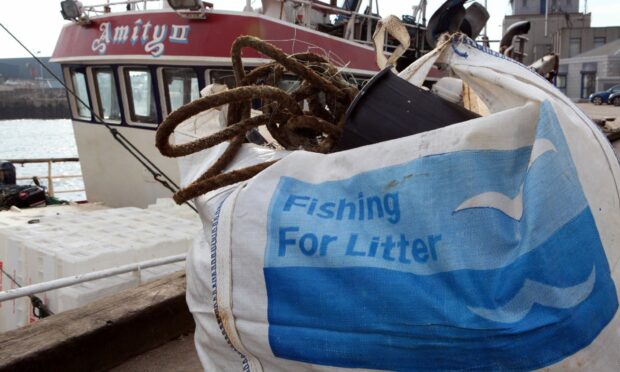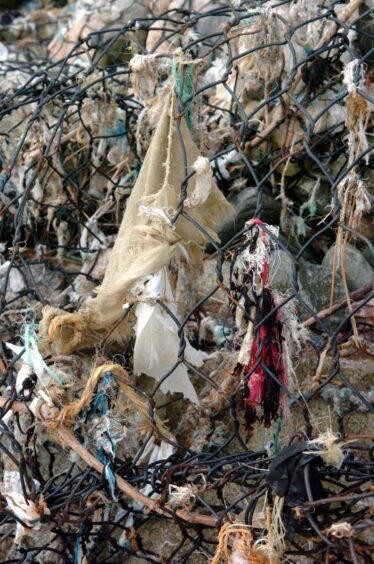Fishing industry efforts to clean up the seas have been boosted by nearly £180,000 of funding from the Scottish Government.
The Marine Fund Scotland cash is going towards Scotland’s contribution the Fishing for Litter (FfL) scheme, an international project to remove marine litter from fishing areas.
Fishers are encouraged through the initiative to improve their waste management practices, while also playing a hands-on role in the clean-up.
Clean-up crew
Vessel crews are given large bags to collect the plastics, discarded fishing gear and other debris that gathers in their nets during normal catching activities.
When the fishing boats come into port they unload the bags of litter for FfL collection.
The scheme – run by international organisation Kimo – helps to raise awareness of the damage done by marine litter within the fishing industry, as well as local communities and among schoolchildren.
First launched in this country in 2005, it has grown to include 20 Scottish harbours, with more than 280 of Scotland’s fishing vessels collecting 1,844 tonnes of marine litter.
Marine litter is a global challenge and we are working nationally and internationally to address it.”
Marie Gougeon, fisheries secretary.
Ambitious targets have been set in Scotland for the coming year.
These include landing at least 150 tonnes of marine litter, recruiting at least another 30 member fishing vessels and adding a minimum of three participating ports.
The new funding will be used to cover waste collection and disposal, staff costs and education materials.
Global challenge
Fisheries Secretary Mairi Gougeon said: “Marine litter is a global challenge and we are working nationally and internationally to address it.
“This funding demonstrates our commitment to reducing plastic pollution as part of a suite of wider measures which includes action on single-use plastic products.
“It also acknowledges the continued success of Kimo’s Fishing for Litter project and the role of our fishing industry in helping remove debris from our seas to support environmental and economic sustainability.”
Ms Gougeon added: “Climate change and biodiversity loss are the greatest long-term challenges we are facing.
“We have prioritised actions in our Programme for Government to tackle marine litter and we are taking important steps to ensure the amount of litter entering the marine environment is minimised to bring ecological, economic and social benefits.
“As global leaders prepare to gather in Glasgow for COP26, we will seize the opportunity to share learning, demonstrate our shared ambition and drive forward essential change through genuine global partnership.”
An estimated 640,000-plus tonnes of fishing gear is abandoned, lost or discarded in the world’s oceans every year.
Animals such as fish, whales, turtles and seabirds can become entangled in the “ghost gear” and may either drown within minutes or suffer long, slow deaths lasting months or even years with debilitating wounds, infection and starvation.
This equipment is often made of long-lasting plastics so can continue to harm the marine environment for hundreds of years.
In Scotland, FfL has grown substantially from a small project operating out of Lerwick harbour in 2005 – when there were just a few vessels involved.
Aberdeenshire man finds rubbish from Scots fishing boats….on Arctic coast


